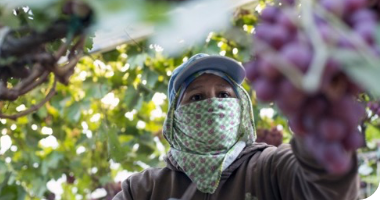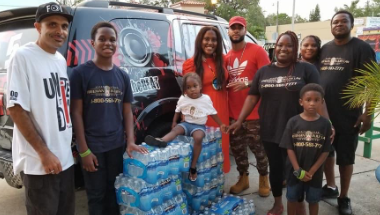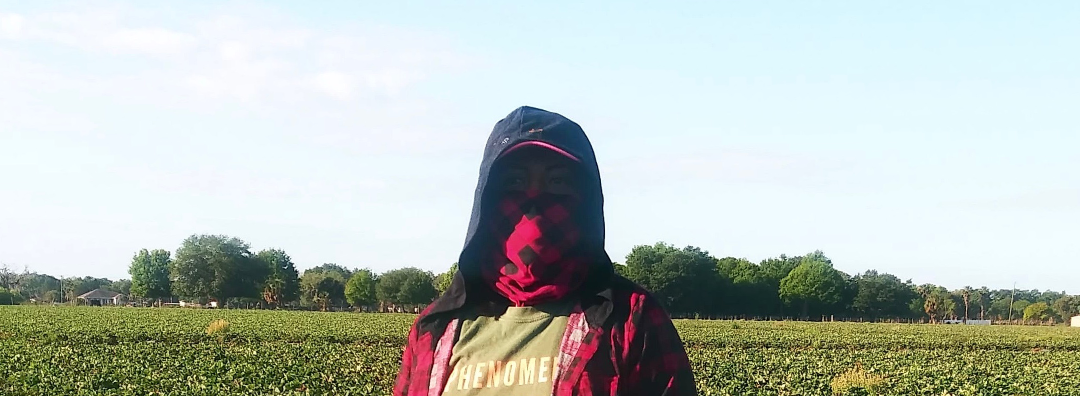Rural Women Rising is a civic engagement coalition that aims to increase the political representation and power of rural women and girls across the United States with a focus on elevating the leadership of women of color and other underrepresented community members. More than 19 million women live and work in rural America, and come from diverse backgrounds, including Latina, Indigenous and Native, Black, and Asian women, as well as women of other races and ethnicities. The Rural Women Rising coalition includes: Justice for Migrant Women, 9to5 National Association of Working Women, Black Voters Matter, Down Home NC, Equality North Carolina, Highlander Research & Education Center, IGNITE, New American Leaders, Return to the Heart Foundation, Rural Assembly, Vote Run Lead and YWCA USA who have come together as a unified voice to speak up for rural women and girls.
Call on Congress for Rural Communities
We are calling on Congress to take action to ensure that rural community members are not left behind during this COVID-19 crisis. State and federal policies have failed to adequately fund the needs of rural communities to properly mitigate the risks of the coronavirus pandemic. We demand a significant increase in aid for people – from rural health care clinics, anti-violence crisis centers, and grassroots organizations, to our food banks and small businesses. We demand a significant increase in aid for our children who struggle to keep up with school due to the digital divide and lack of broadband access. We demand a significant increase of aid for workers who need protection, assistance, and benefits during this crucial time. Along with a demand for increased aid for rural community members, we demand increased access to COVID-19 testing in rural communities.

As the COVID-19 pandemic expands into rural America across the United States, these communities will be among the hardest hit due to the disproportionate impact of systemic oppression on already marginalized rural communities and due to lack of resources. Rural Women Rising is gravely concerned about the health and welfare of rural populations, including the farmworker community, their families and the security of our entire food supply.
Farmworkers Need Support
Farmworkers continue to show up to work to feed families across the country even while states across the country require that their residents shelter in place amid the Coronavirus crisis. Yet, farmworkers are neglected in Congressional relief packages and other decisions made that have an impact on the lives and livelihood of workers. It is our workers on the frontline — those in healthcare, domestic work, first responders, grocery store and restaurant workers — who are risking their health and carrying the country on their backs. They are doing so without the aid or support they need, with no additional pay or help for their families. It is with a sense of urgency that the undersigned organizations request that Congress provide immediate relief to these essential workers in the next stimulus bill.
“Farmworkers, which are woven into the fabric of our rural communities, have always been at risk of illness and harm, but that risk has increased exponentially with COVID-19. Their work conditions make it nearly impossible for farmworkers to be able to abide by the social distancing, handwashing and other requirements that health care professionals say are necessary to prevent the transmission of the illness,” said Mónica Ramírez, President of Justice for Migrant Women. “In addition, we are alarmed by the significant increase in gender-based violence in rural homes as shelter-in-place orders confine victims with their abusers. More resources are required to keep women and children safe during these months of isolation, which for some poses an increased risk of abuse and violence. Farmworkers, and all rural communities, deserve protection, along with respect and benefits to survive this crisis.”
It is not lost on us that the worst health outcomes are experienced by people of color and those who are poor. From Appalachia to impoverished rural communities struggling to stay afloat with the shrinking industrial economy and diminishing presence of small farms, no matter the background of those who live in rural America, it is clear that the poor conditions, and disinvestment in infrastructure have resulted in conditions that make our communities susceptible to this illness and leave us ill equipped to return from its devastating consequences for our health and our economies. As states begin to prematurely resume normal operations, rural communities, in particular people of color, are vulnerable to the negative impacts.
Diverse Communities Need Diverse Solutions
Counted among our rural community are thousands of Native community members who live in pueblos and other parts of rural America. These communities are particularly susceptible to the spread of this virus. Illness and death among our Native and Indigenous community not only adds to those who are being counted among the many impacted by this illness, but it also could lead to an end of ancestral teachings, practices and traditions. These losses come at an immense cost to all of our communities because of the many generations of wisdom and learnings that the Native community has shared with all of us from how to care for the earth and spiritual guidance and knowledge-sharing about healing medicines and practices, to their important role as entrepreneurs and creators in our society.

Urgent action is required to ensure that rural community members receive the significant increase in aid needed from the federal and state governments that will be necessary to survive this crisis. In addition, political leaders must make a commitment to support our rural communities through and past this crisis for a fighting chance to bounce back once our country re-opens and recovers from the impact of this global pandemic.
“Rural women have been disproportionately left behind when it comes to formal policy solutions,” said Leng Leng Chancey, Executive Director at 9to5 National Association of Working Women. “Layer on systemic barriers faced by low wage workers, women of color, and undocumented folks and you have a recipe where those most impacted by crisis are still left underserved and overworked. We need comprehensive, community centered solutions that extend beyond our current crisis.
“COVID-19 has exposed the deep social, economic, and political crisis that rural North Carolina has been enduring for decades,” said Chelsea White-Hoglen, Community Organizer for the Western NC Region at Down Home North Carolina. “Our members recognize that this is not a moment to stand down but instead to stand up: We need to build strong multiracial power for poor and working families to protect us now and into the future.”
“The COVID-19 pandemic is highlighting the pressing needs that are constantly impacting rural communities nationally,” said Sara Guillermo, Chief Program Officer at IGNITE. “We stand with the Coalition to ensure that financial resources are allocated to rural communities.”
“Rural women of color are the backbone of our country,” said Sayu Bhojwani, Founder and President of New American Leaders. “They enrich our communities, economy, and families. We owe them the resources and support they need to keep everyone in rural communities safe and healthy in the midst of the coronavirus pandemic. We are proud to stand alongside these women and all partners working to create a more equitable democracy.”
“Rural Native American communities have been vulnerable for generations and are now desperate to have personal protective equipment to survive,” said Sarah Eagle Heart, Co-Founder & CEO of Return to the Heart Foundation. “But it is also essential to focus on Native GOTV to ensure our voice is not further marginalized during the COVID-19 pandemic.”
“We know rural women are often the primary organizers, leaders, creators, and implementers of more just and inclusive efforts in their communities,” says Whitney Kimball Coe, Director of Rural Assembly. “Yet they are also more likely to experience the trauma of inequities across all measures of health, economic security, connection, power, and safety. Now is the time to rewrite the national story by prioritizing historically marginalized voices, by shoring up rural communities, and by investing in a future that includes all the people in all the places.”
Rural Women (and Communities) Need More Resources
“Overlooking rural women will only further put our communities at risk. Providing the resources needed will ensure our rural communities thrive,” said Erin Vilardi, Founder at Vote Run Lead. “It is the leadership of rural women that will make or break the post-COVID-19 future. The long-term health and economic vitality of rural America depends on them.”
“We know from our YWomenVote2020 survey, that women in rural communities have clear legislative priorities regarding health care, equal pay, childcare, and domestic and sexual violence,” said Alejandra Y. Castillo, CEO of YWCA USA. “We urge Congress and other state and local legislators to implement policies and take legislative actions to provide funding for critical services and programs that support women all across America. We must focus our attention on delivering critical resources like access to the internet, counseling services, and housing; as well as other services like those provided by YWCAs to rural communities and other vulnerable populations. It is our goal at YWCA not just to weather the COVID-19 crisis, but to support and protect the needs of women and children as we rebuild.”
Rural Women Rising members are responding to the immediate needs of rural communities during the COVID-19 epidemic by creating emergency relief funds, listed below.
Quick Links
J4MW Farmworkers’ COVID-19 Pandemic Relief Fund – The fund was launched to raise money that will go directly to the farmworker community so that farmworkers are able to ensure they can take care of basic needs for their own families during these uncertain times.
Down Home North Carolina’s Mutual Aid Fund– Down Home launched this fund to raise monetary support for Down Home members financially impacted by COVID-19. Our members are facing a variety of challenges, from needing to purchase cleaning supplies and hygiene items to protect themselves from the virus to coming up short on bills, rent, or their food budget. We have expanding support beyond our membership and into the local communities our members call home.
9to5 Rapid Response Care Fund – At 9to5, we’re navigating the current Covid-19 crisis by putting our communities first. Women of color, undocumented people, low-wage, temp, contract and gig workers are being left out of emergency aid packages. We launched the Rapid Response Care Fund to get critically needed cash assistance to those that need it most – people struggling with job loss; those facing eviction; caregivers providing for the sick; families wondering how they are going to keep the lights on.
#NativeCOVIDAction Fund – Return to the Heart Foundation are supporting the facilitation of in-kind donations and raising funds to support Personal Protective Equipment to tribal

